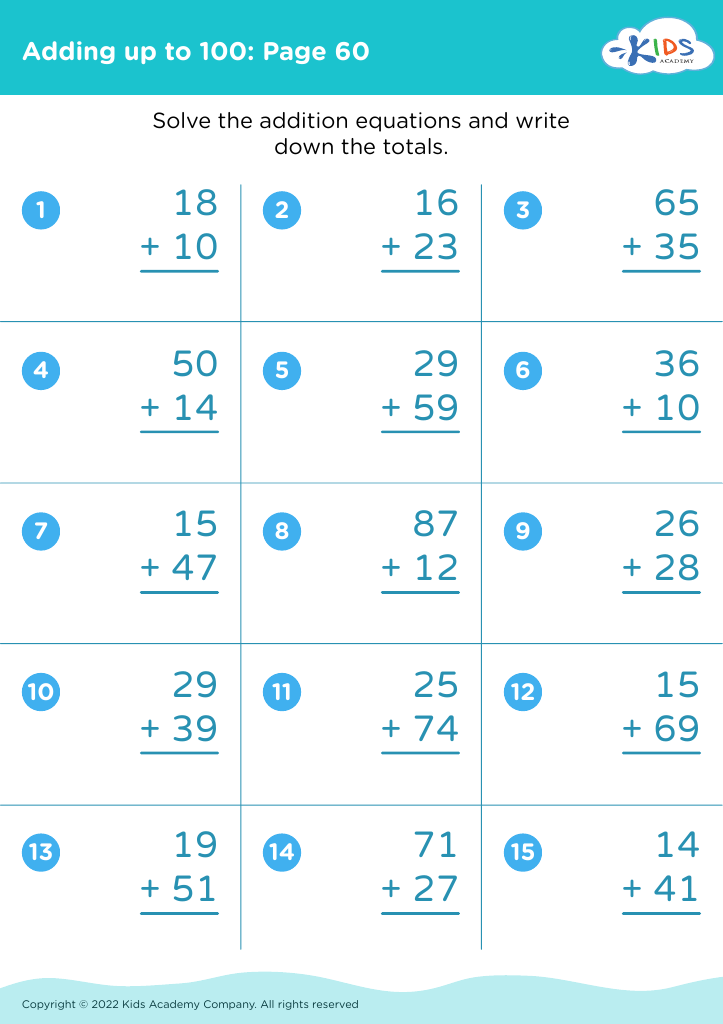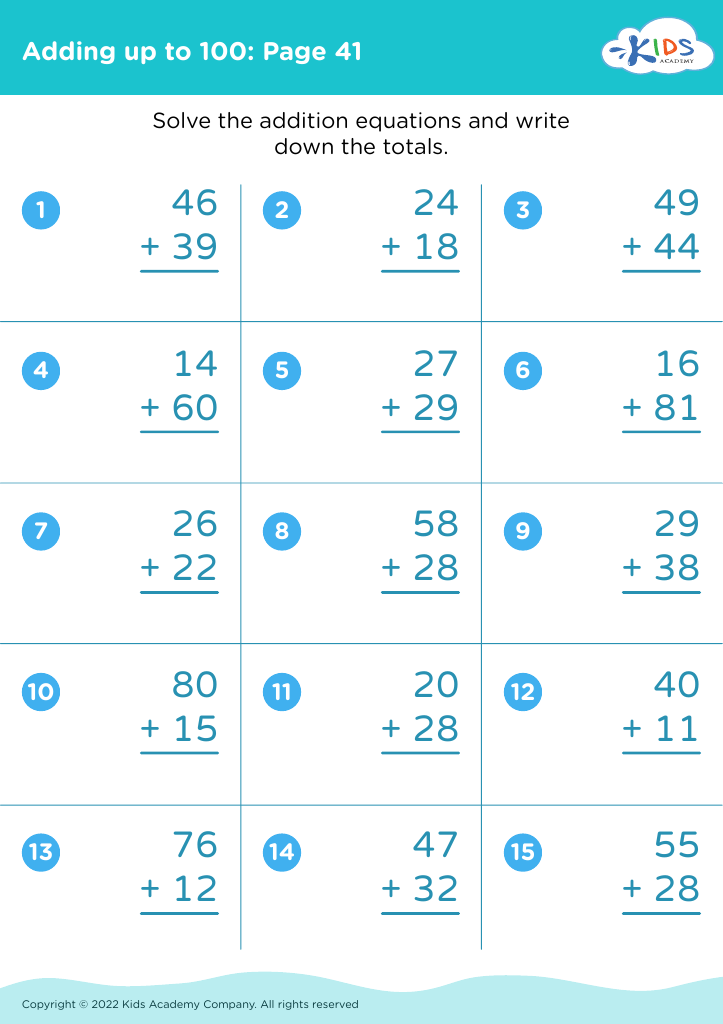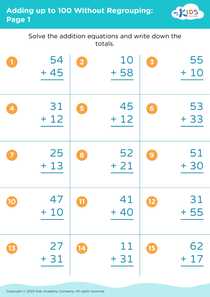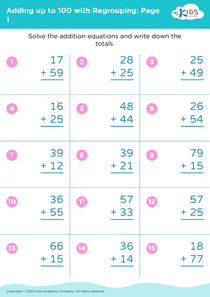Recognizing Patterns Adding up to 100 Misc Worksheets for 8-Year-Olds
3 filtered results
-
From - To
Unlock the power of pattern recognition with our "Recognizing Patterns Adding up to 100" worksheets for 8-year-olds. Perfect for young math learners, these worksheets provide engaging activities that help children master addition while identifying numerical patterns. Each worksheet focuses on exercises designed to strengthen problem-solving skills and enhance arithmetic fluency. Tailored to fit a variety of learning styles, these fun and educational resources keep kids motivated and excited about learning math. Watch as your child confidently sums numbers up to 100 and develops critical thinking abilities. Ideal for classroom or home use, download now from Kids Academy!
Recognizing patterns and understanding how numbers add up to 100 is a significant cognitive milestone for 8-year-olds. When parents and teachers emphasize these skills, they foster foundational math abilities that are crucial for future academic success. Patterns help children make sense of complex information by breaking it down into simpler, more manageable parts. For example, being able to identify and understand numerical patterns equips children with problem-solving techniques and critical thinking skills essential not only in math, but across all subjects.
Focusing on adding up to 100 deepens their understanding of place value and arithmetic, and it builds number sense—an intuitive feel for numbers and their relationships. Mastery in these areas contributes to faster and more accurate calculations. This confidence and proficiency will ease the transition into more advanced math topics later on, such as multiplication and division, fractions, and decimals.
In addition to academic benefits, pattern recognition and arithmetic fluency can boost children's self-esteem and confidence. When kids feel capable of tackling math problems, they’re more likely to cultivate a positive attitude toward learning and challenge themselves. Ultimately, integrating these skills into early education supports a strong mathematical foundation, setting up children for a lifetime of learning and problem-solving success.














